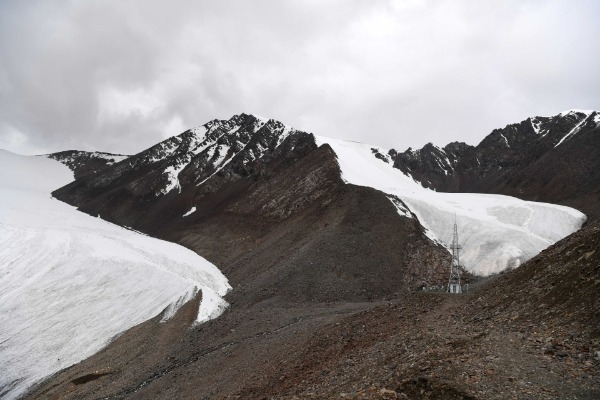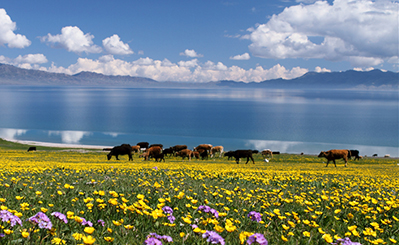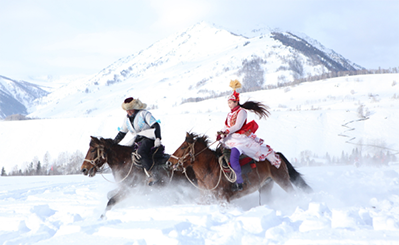Xinjiang glacier reserve now a paradise for wildlife

Glaciers are known as "solid reservoirs" and play an important role in supplementing and regulating river runoff.[Photo/Xinhua]
Years after mining, grazing and tourism were banned in a glacier reserve of Northwest China's Xinjiang Uygur autonomous region, wild animals have returned to celebrate the improving environment of the reserve.
About 130 km from the regional capital of Urumqi, Glacier No. 1 in the Tianshan Mountains at an altitude of 3,850 meters is closer to a city than any other glacier in the world.
A series of snow leopard observation activities around the glacier carried out by wildlife protection volunteers since 2015 found that the number of large animals in the area has been increasing visibly.
The number of snow leopards has stabilized at more than 20, said Xing Rui, head of a local volunteer organization for wildlife conservation, adding that bears that had disappeared since the 1990s have reappeared, and the numbers of wild sheep, red deer and wild boar are also increasing rapidly.
Glaciers are known as "solid reservoirs" and play an important role in supplementing and regulating river runoff. An observation station set up in 1959 has found that the glacier has been receding since the 1960s.
Experts warn that Glacier No. 1 will melt completely in 50 years at the current rate of ablation, and residents in the lower reaches of the glacier will face the risk of water shortage.
 Attractions
Attractions Dining
Dining Culture
Culture